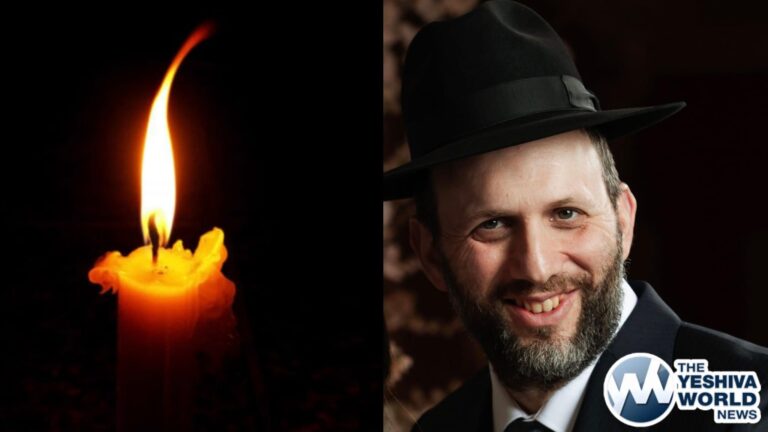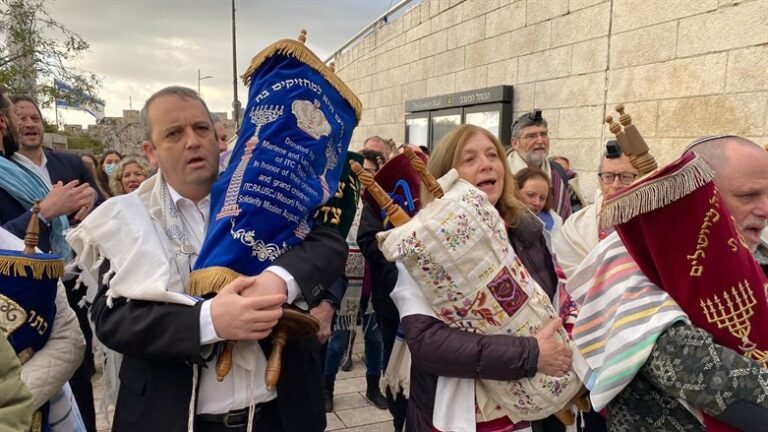 Israel Police officials are opposed to the Muezzin Bill, explaining they prefer to continue as is, enforcing the law on a local level if and when necessary. The Walla News report is based on “insider opinion from within the department”, stating an internal document making the rounds in the department speaks out against the need for new legislation towards enforcing a maximum mosque loudspeaker volume. This document, and others, were shown during meetings of the Knesset Environment Committee and the Knesset Interior Committee during sessions addressing the controversial bill.
Israel Police officials are opposed to the Muezzin Bill, explaining they prefer to continue as is, enforcing the law on a local level if and when necessary. The Walla News report is based on “insider opinion from within the department”, stating an internal document making the rounds in the department speaks out against the need for new legislation towards enforcing a maximum mosque loudspeaker volume. This document, and others, were shown during meetings of the Knesset Environment Committee and the Knesset Interior Committee during sessions addressing the controversial bill.
Police fear that passing legislation which would be accompanied by zealous enforcement will lead to extremism in the Arab sector and this would be contrary to ongoing Israel Police efforts to improve relations in that same community while stepping-up enforcement. Police point out the issue of the mosques strikes a sensitive tone and must be deal with in the same fashion for the department is aware there are dramatic issues that are difficult to enforce.
The enforcement of the law limiting the decibel level of mosque loudspeakers is reportedly a priority project for both Public Security Minister Gilad Erdan and Police Chief Roni Alsheich. It is part of an overall law-enforcement project in the Israeli Arab sector including cracking down on illegal weapons and ending dangerous driving habits. Towards meeting the challenge, 2,600 recruits have been brought into the department, many from the Arab sector and they will be stationed in Arab municipalities and in Arabic-speaking areas of the eastern capital. Police remain confident that with the significant boost in manpower, the enforcement in the Israeli Arab sector will be significantly higher than seen in the past.
Officials from Erdan’s office in recent weeks have been meeting with their colleagues in the Environmental Protection Ministry towards combining forces in silencing the mosques. Police received 1,537 complaints regarding the loudness of the mosques from January 2014 through October 2016 and 1,261 of those complaints were in Jerusalem – primarily in the Pisgat Ze’ev and Ramat Shlomo (Reches Shuafat) neighborhoods. Other areas where there are many complaints include Caesarea, Gisar a-Zarka, Nazareth, Migdal HaEmek and Carmiel.
In line with new enforcement protocol set into place, upon receiving a complaint for a house of worship, local police will be instructed to arrange for a meeting with religious leaders and representatives of the Ministry of Environmental Protection in the hope of resolving the matter. If agreement cannot be reached, police will continue a dialogue with religious officials, not a policy of enforcement.
It is added, since the bill has been introduced, there have been statements against it released by President Reuven Rivlin, Chief Rabbi Dovid Lau Shlita, and Kulanu party leader Finance Minister Moshe Kahlon among other politicians and public officials.
Some elected officials in the chareidi sector originally opposed it as well for fear it would result in prohibiting the erev Shabbos sirens heard in so many areas before candle lighting. However, the bill was reportedly amended to earn their support.
(YWN – Israel Desk, Jerusalem)











2 Responses
It has nothing to do with shabbos sirens the chareidim made a deal with the Arabs sadly the chareidim tend to be very left wing &I’m saying this as a chareidim
The Shabbos siren issue is very relevant. The Muslim prayers have the same kedushah to them as Shabbos tefillos and zman has to yidden. In modern society where everyone has a watch and PDA and clocks are everywhere, there is no need for either side to add to the already pervasive noise pollution in our communities.